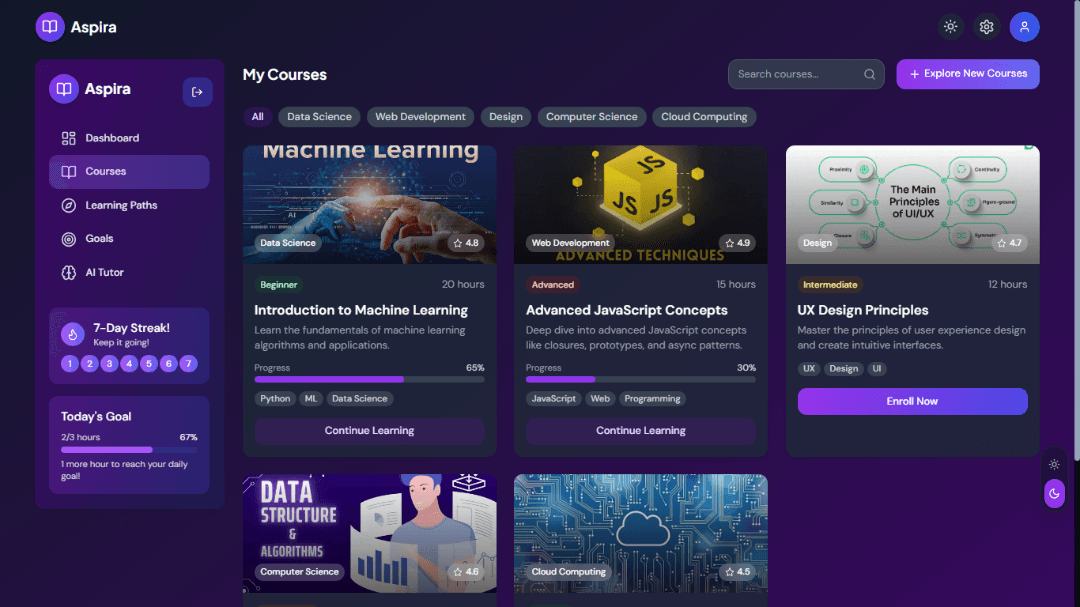🎓 Aspira – AI Personal Tutor UI Template
Aspira is a thoughtfully designed SaaS frontend UI template for building AI-powered learning platforms. Built with Next.js 14, Tailwind CSS 3, and Shadcn UI, it provides a clean, smart foundation for educational apps that deliver personalized learning experiences, AI-driven course recommendations, and smart tutoring tools.
✨ UI & Usability Highlights
✅ Clean, modern, and intuitive user interface
♿️ Accessible UI components using Shadcn
🌙 Full dark mode support
📱 Optimized for all screen sizes and devices
📊 Prebuilt chart components for learning analytics
🎞️ Smooth animations and transitions
🧼 Clean and modular codebase
🔌 Ready for backend/API integration
📚 Core AI & Learning Features (UI-ready)
📊 Comprehensive Learning Analytics for performance tracking
🧠 AI Insights & Recommendations for every learning action
📘 Course Explorer with AI-powered recommendations
🛤️ Custom Learning Paths with intelligent suggestions and feedback
🎯 Learning Goals Tracker with AI-powered improvement tips
💬 AI Tutor (Chat-based):
Personalized responses based on user’s courses
Inline course/concept suggestions
Concept explanation, quiz help, and more
🚀 Getting Started
Download & Unzip
After purchasing and downloading the ZIP file, unzip it. Inside, you’ll find a folder namedaspiraNavigate to the Project
Open your terminal or command line, and navigate to the folder:cd aspiraInstall Dependencies
Run the following command to install all required packages:npm installRun the Development Server
Once installation completes, start the development server:npm run devVisit the App
Open your browser and visit:Start Customizing
Open the project in your favorite code editor (e.g., VS Code) and begin customizing:🎨 Change Colors: Update color palette in
tailwind.config.tsor use global Find & Replace🔠 Change Fonts: Update fonts in global styles or Tailwind config
📁 Add Pages or Components: Extend UI from the organized
components/andapp/folders⚙️ Integrate APIs: Hook up real data by integrating your backend endpoints
